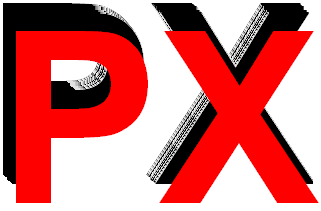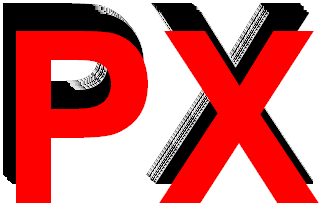2002 Coup in Venezuela
- By Poetry X
- 24 May, 2014
- No Comments
Apr 11th 2002 – Venezuela military coup supported and aided by the United States.
EVENTS
- On April 11th, the opposition called for a march and suddenly they decided to drive the protesters to encounter the Chavez’s supporter crowd in Miraflores which was seven miles away.
- Once the opposition march reached Miraflores, the National Guard tried to separate the two bands but suddenly snipers shot many people on the head. This event is known as the Llaguno Massacre. 19 people got killed and 100 wounded.
- Mysteriously, Molina Tamayo, Carlos Ortega, Enrique Mendoza and Guaicaipuro Lameda, the leaders who called the opposition crowd to meet the pro-government supporters had disappeared from the scene right before the shootings started to later appeared on television denouncing President Chavez for shootings against the protesters.
- High army commanders appeared on television condemning the killings on the streets and calling President Chavez to resign.
- Then tanks surrounded the presidential palace and the army threated bombing the place. Chavez’s collaborators refused to leave Chavez alone even after the threats. Then Chavez decided to let the army take him to avoid any bloodshed.
- The media falsely informed that Chavez had resigned.
- Pedro Carmona, head of the chamber of commerce, was implanted as president of Venezuela. He immediately repealed the constitution, dissolved the Supreme Court and the parliament and ordered the detention of any authorities linked to the Chavez government including elected mayors and governors.
- Later on, people found out Chavez was forced out of office and they moved massively to the streets to demand Chavez back in power.
- Throughout April 12th, the coup forces leaded a violent crack-down against protesters and run a witch hunt of any prominent Chavistas. In the same token, the Cuban embassy was assaulted and cut from water and electricity.
- Andres Izarra, a journalist, resigned from RCTV, after the channel, like all private media, implanted a policy of no showing people’s opinions in favor of Chavez. The state channel was cut from air immediately after the coup.
- On April 13th soldiers loyal to Chavez, with the support of the population, put Chavez back in office.
CONTEXT
- Before Chavez became president, oil was owned by the state, but it was run like a private business to benefit only a privileged minority [PSVSA Informe / TeleSur].
- At that point, the Chavez administration had won eight elections with major support of the public. The traditional political parties lost a lot of power due to Chavez popularity.
- In February 2002, Chavez announced the oil management board would no longer be composed of the traditional elite.
- After the announcement, the media started to call for the overthrowing or the assassination of Chavez.
FINDINGS
- It was found that days before the coup, Carlos Ortega and Pedro Carmona went to Washington for a private meeting [Los Angeles Times Apr 17-2002 ]. In addition, Carmona was designated by the U.S to take the presidency once Chavez got kicked out of power.
- Eleazar Narvaez & Carmen Leon, two protesters in the opposition march on April 11th had been shot before getting to Miraflores, but the media had maliciously hidden these events to the public.
- During the Llaguno massacre, there were specific police groups assigned in every street to avoid the encounter of the two political groups, but it was later found police units hadn’t taken their positions in two of the streets and the national guard hadn’t covered one of those streets neither.
- The shootings on the Llaguno massacre were blamed on the government based on one single camera view from the Venevision network. A second camera take had made clear the people shooting were not aiming at the crowd, but that footage was hidden to public.
- Otto Neustandtl from CNN and Gladys Rodriguez from Globovision stated that the generals who appeared on television condemning the shootings of the Llaguno massacre, had made a video rehearsal where they denounced the killing of six people when at that moment there was no any casualty [UBM Forum Jul 2002].
- Through freedom of information inquiries, lawyer Eva Gollinger revealed multiple official documents where the CIA had been planning the coup against president Chávez, including his assassination [New York Times Dec 3-2004 / Chavez Code / CorreoDelOrinoco Feb 8-2015].
AFTERMATH
- The supreme court decided not to declare the event as coup despite all the evidence making the case for it.
- After these events, the opposition parties that supported the coup were allowed to keep participating in elections, the private media that supported the coup has been allowed to keep reporting and SUMATE and other anti-Chavez “NGO’s,” keep receiving US funding, $7.6M just in 2013 [AP Jun 18–2014].
- In coming months, Venezuela had to endure multiple sabotages against its economy in addition to plots to assassinate the president. All of these events were funded and supported by US agencies. And through the years, the revolution gained all, but one, elections despite being attacked by all political, financial and media powers.
- Regarding the international media, the three major groups of Latin American newspapers agreed to publish a daily page against the Venezuela government in their 82 affiliated newspapers, a smear campaign even worse than against Germany to induce the US public to enter World War II [Venezuelanalysis March 12-2014].
- Alvaro Uribe, former Colombian president and a prominent politician with links to narcotrafic and paramilitarism, integrated a right wing alliance with roots in Washington to topple down Chavez.
[Puente Llaguno – Claves de una masacre, film by Angel Palacios / The Revolution Will not be Televised (Chavez, Inside the Coup) – film by Rod Stoneman & David Power]

 Copyright © 2025
Copyright © 2025
Leave a Reply